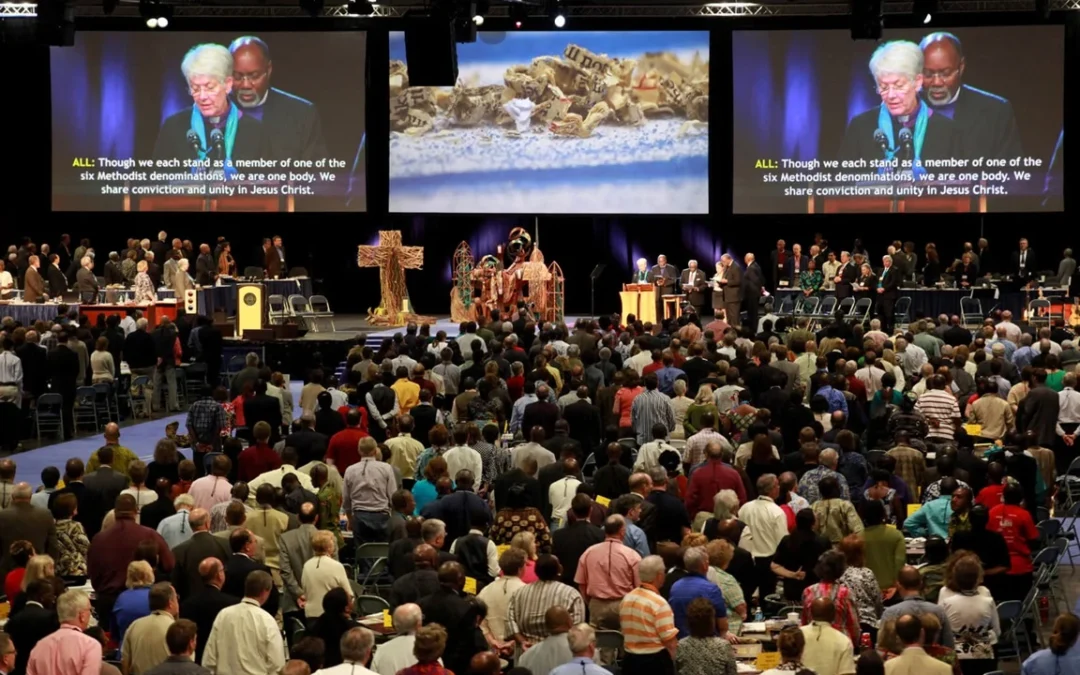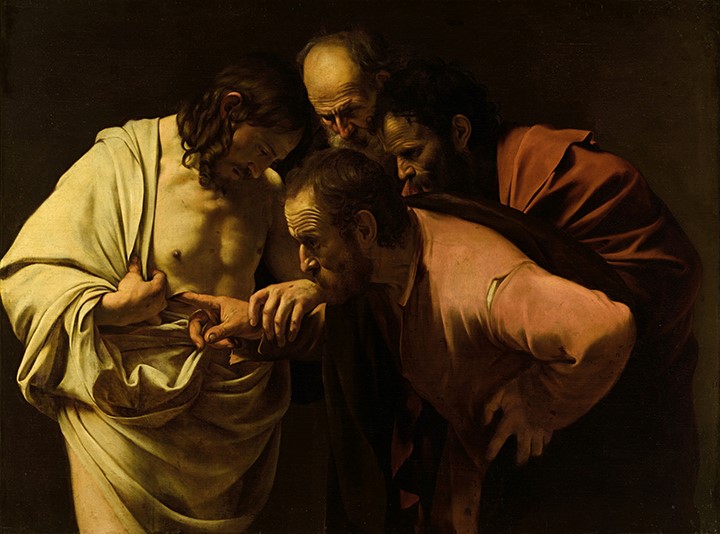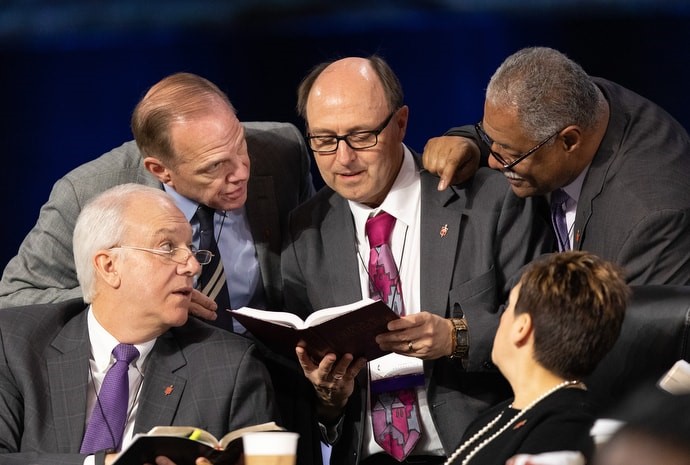
Is a New Disaffiliation Pathway Needed?
Is a New Disaffiliation Pathway Needed?
By Thomas Lambrecht
Recently, several articles have come out saying that there are already disaffiliation pathways for annual conferences and local churches, so new pathways do not need to be enacted by the 2024 General Conference. For example, Christine Schneider, a reserve delegate from Switzerland and member of the Standing Committee on Central Conference Matters, surprisingly declares: “In the central conferences, we do have functioning procedures for handling the disaffiliation of annual conferences and local churches. Extending disaffiliation options under something like Paragraph 2553 is therefore simply not needed here.” That is her startling opinion.
Of course, Schneider writes from a uniquely European perspective that does not apply in Africa. She gives the example of Estonia, which is leaving the denomination using a process defined by its central conference. She also mentions 14 local churches in France disaffiliating from their Switzerland-France-North Africa Annual Conference. In both cases, these disaffiliation process were negotiated by the entities involved. The admirable goodwill exhibited by church leaders enabled these disaffiliations to be successfully worked out. The same goodwill is not present in all parts of Africa.
My colleague, Simon Mafunda, WCA Vice President for Africa, recently reported to me, “In Africa, several bishops have declared their adamant opposition to allowing any disaffiliation to take place. In some areas, pastors inquiring about disaffiliation have been summarily fired without any due process, depriving them of both house and livelihood. Around September 2022, a majority of African bishops meeting at Africa University took a combative stance and banned activities of both Africa Initiative and Wesleyan Covenant Association known for advocating for justice and fairness with regards to these disaffiliation rights. The prospect of amicable negotiations in these situations is unlikely.”
The only official process for disaffiliation to occur in the central conferences outside the U.S. is Par. 572, which allows an annual conference to become an autonomous Methodist Church. To do so is a long and arduous process that can take up to four years or more, depending upon when the process begins and when the General Conference is held. It requires the departing annual conference to develop its own statement of faith, constitution, and Book of Discipline. It requires the approval of the Standing Committee on Central Conference Matters, the relevant central conference, a two-thirds vote of all the members of the annual conferences in that central conference, and the General Conference. At any point along the way, a negative vote by any one of these entities can derail an annual conference’s disaffiliation. Furthermore, the African annual conferences that could consider disaffiliating are not interested in becoming autonomous Methodist churches. They would want to affiliate with another Methodist denomination, such as the Global Methodist Church, the Free Methodist Church, or the Church of the Nazarene. Why should they have to go through all the work of composing their own Discipline when they would rather just adopt the Discipline of the denomination they are aligning with?
By contrast, a proposed new Par. 576 would allow annual conferences outside the U.S. to disaffiliate in order to align with another Wesleyan denomination simply by adopting that denomination’s Book of Discipline and receiving the affirmative vote of their central conference. It would be a much more straightforward process with only one level of approvals.
The proposed new Par. 576 would apply only to annual conferences outside the U.S. (It is highly unlikely that any annual conferences in the U.S. would want to disaffiliate as an annual conference, given that many traditionalists have left those annual conferences.) So, this disaffiliation pathway would not affect churches in the U.S. at all.
What about local churches?
At this point, the only process in the Discipline left open for local churches to disaffiliate is Par. 2549, which allows an annual conference to close a local church and dispose of its property. Some annual conferences are using this paragraph to “close” a church that wants to disaffiliate and then sell the property to the exiting congregation. In most cases, the cost is similar to what Par. 2553 required: two years of apportionments and a pension liability payment. Any other process would be outside the scope of what the Discipline allows. And in all cases, this process depends upon the goodwill of conference leaders to allow the local church to disaffiliate under this closure paragraph. They can say “no” or jack up the cost to make it prohibitively expensive to disaffiliate.
In a recent blog (under the ominous, misleading, and tabloidish headline: “Good News Issues Threats to Delegates”), the Rev. Mark Holland of Mainstream UMC says, “To be clear, Mainstream UMC believes that churches should be able to leave, but this should be left up to the annual conferences and central (or regional) conferences to handle from this point forward.” It is good to hear Holland endorse the ability of local churches to disaffiliate going forward. However, it is at the point of leaving it to the annual conferences where the process too often breaks down.
Many annual conferences handled Par. 2553 disaffiliations with integrity and cooperation, despite the pain involved for all concerned. Unfortunately, about a dozen annual conferences arbitrarily and capriciously imposed additional requirements or abruptly changed their policies on disaffiliation. At least eight annual conferences required payment of a percentage of the church’s property value, anywhere from 10 to 50 percent. With the high property values on the coasts, that could push the cost of disaffiliation for even a small to medium sized church into the millions of dollars. One church in California figured it would need to pay $60,000 per member to disaffiliate! A few annual conferences imposed other additional costs and fees that further raised the price. In many cases, the financial penalty for disaffiliation made it realistically impossible for local churches to disaffiliate. In those cases, churches faced the choice of staying in the annual conference or walking away from buildings and property they had invested in for decades, depriving them of their ministry base and forcing them to start over as a new church plant.
A few annual conferences arbitrarily changed their disaffiliation process mid-stream. After allowing a first wave of churches to disaffiliate, both North Georgia and Alabama-West Florida changed the rules to halt any further disaffiliations. Peninsula-Delaware allowed a first wave of disaffiliations, but then imposed a 50 percent of property value fee that priced most churches out of the ability to disaffiliate after that. Both West Virginia and South Carolina initially banned all disaffiliations, with South Carolina grudgingly coming to allow them late in the process using Par. 2549. West Virginia allowed only 24 of its 971 churches to disaffiliate, merely one-tenth the national average.
In Africa, the situation is similar, with most bishops opposing any form of local church disaffiliation. As mentioned above, in parts of the Democratic Republic of Congo, pastors whose local churches wanted to disaffiliate were summarily removed as clergy without any charges or due process. This deprived the pastors of their home in some cases and of their livelihood. And the congregation was unable to disaffiliate. The only reason more than 50 local churches disaffiliated in Kenya is that they constituted a majority of the annual conference and were able to vote to allow their own disaffiliation in defiance of the bishop’s opposition (not a healthy dynamic to encourage).
In another recent commentary, Holland says, “It is unacceptable for the General Conference to prescribe another uniform process that will hurt the very annual conferences that have already been hit the hardest by disaffiliation.” It is only by providing a “uniform process” that the arbitrary and capricious actions of a few annual conferences can be corrected. To set the record straight, local churches in those annual conferences never truly had an opportunity to disaffiliate. The annual conferences in the U.S. most affected by extending a uniform process would be those who lost very few congregations due to their draconian requirements. They would NOT be the annual conferences “hit the hardest by disaffiliation.” Those hit the hardest have already lost the vast majority of churches that would want to disaffiliate.
To close out the option of disaffiliation at this point would be unjust. In annual conferences where bishops and conference leaders oppose disaffiliation, they should not be allowed to thwart the intent of General Conference to provide an equal opportunity for all congregations to discern their future. Such an opportunity is even more important now, given the magnitude of the changes envisioned for the UM Church to be enacted at the Charlotte General Conference.
What about fairness?
In some U.S. annual conferences, bishops and other conference leaders lobbied their churches to wait and see what happens at the 2024 General Conference. They made the case that nothing had changed in the Book of Discipline, and that we don’t know what the General Conference will do in terms of the proposed changes coming before it. They told local churches they should wait until after the General Conference acts before making a decision about disaffiliation. Yet very few of these annual conferences made provision for any disaffiliation process after the upcoming General Conference. One that did – Mississippi – reneged on that promise by stipulating that any churches not in the discernment process by the end of March would not be considered for disaffiliation. Thus, through their change of policy, they defeated the very purpose of churches waiting until after the General Conference acts. How is this fair?
Only a uniform process adopted by the General Conference can ensure that annual conferences do not act to block the ability of local congregations to discern their future in light of how the UM Church changes its standards and teachings at the upcoming General Conference. Failing to adopt such a process locks churches into a denomination changing in directions they may not agree with. Such an outcome will hurt those local churches, who will lose members due to the changes, and it will hurt the UM Church, which will still have within it congregations actively opposing the new directions chosen by the General Conference. Allowing a fair and uniform process of disaffiliation is in the best interest of all concerned.
The issue of fairness returns us to where we began this article. UM Churches in the African context need a uniform disaffiliation process. To fail to provide it would mean that churches in the U.S. had rights and privileges that are denied to our brothers and sisters in Africa. It is bad enough that their opportunity to discern their future was put on hold for three years past when U.S. churches could act. To completely cut off the option of disaffiliation through the provisions of the Discipline would reflect unfair and unequal treatment and indicate a disregard for the needs of our global brothers and sisters.
For the sake of justice and fairness, a uniform process of disaffiliation for annual conferences and local churches is needed. Current options do not meet the need. Hopefully, the General Conference will see the need and respond positively to it.
Thomas Lambrecht is a United Methodist clergyperson and vice president of Good News. Photo: Delegates and visitors at the 2012 United Methodist General Conference in Tampa, Fla. On the screen are Bishop Sharon Rader and Bishop John White. A UMNS Photo by Kathleen Barry.




